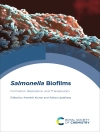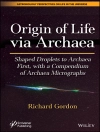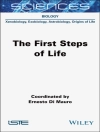This second volume of a two-volume work reviews beneficial bioactive compounds from various microorganisms such as bacteria, fungi, cyanobacteria in plant diseases management and the postharvest management of fruits using microbial antagonists. Furthermore, it reviews the impact of climate change on food security and addressed the legal aspects of microbial biocontrol applications.
The two-volume work “Microbial Biocontrol” introduces to mechanisms of plant-microbe interactions and explores latest strategies of how microbes can be applied in biocontrol and management of plant pathogens, replacing chemical fertilizers and pesticides. The book covers different groups of microorganisms such as bacteria, fungi, but also the interplay of entire microbiomes, and reviews their specific benefits in crop growth promotion, in enhancing the plants’ tolerance against biotic and abiotic stress as well as in post-harvest management of various plant diseases. Novel tools such as CRISPR/Cas9 and microbe derived nanoparticles are also addressed besides the legal aspects of biocontrol applications.
Today, rising global population and changing climatic conditions emerge as a major challenge for agronomist farmers and researchers in fulfilling the requirements of global food production. The conventional agricultural practices utilize undistributed use of chemical fertilizers and pesticides to enhance growth and yield of agricultural products and fresh foods, but their extensive and continuous use have led to a range of negative consequences on the food quality and safety, to environment as well as to human and animal health. Microbial biocontrol applications are presented as a solution, paving the way to a sustainable agriculture in compliance with the UN Sustainable Development Goals (SDG).
The book addresses researchers in academia and agriculture.
Tabella dei contenuti
1 Impact of Climate Change on Food Security and Plant Disease.- 2 Speed breeding for rapid cycling of crops for stress management and global food security.- 3 Role of
Trichoderma spp. in biocontrol of plant diseases.- 4 Endophytic microbiome in bioactive compounds production and plant disease management.- 5 Molecular basis of plant-PGPMs interactions during amelioration of biotic stress.- 6 Cyanobacteria as a biocontrol agent.- 7 Tailoring disease resilience crops through CRISPR/Cas.- 8 Microbial Battling of Fire Blight Disease on Pome Fruits.- 9 Microbial antagonists from different environments used in the biocontrol of plant pathogens.- 10 Enhancement of biocontrol agents activity by compatible treatments against postharvest disease of fruits.- 11 Microbial Management of Ornamental Plants/Palm Common Pests.- 12 Legal and Commercial Aspect of Microbial Control.- 13 Bacterial antagonists: Effective tools for the management of post harvest diseases in fruits, vegetables and food grains.- 14 Adapting the changing environment: Microbial way of life.
Circa l’autore
Dr. Ajay Kumar is currently working as visiting scientist at the Department of Postharvest Science of the Agriculture Research Organization (ARO), Volcani Center, Israel. Dr. Kumar completed his doctoral research at the Department of Botany, Banaras Hindu University, Varanasi, India. He has published more than hundred research articles and chapters in the leading international journals or books. He has experience in a wide area of research, with a particular focus on fruit microbiome, postharvest management of fruits, microbial biocontrol, plant-microbe Interactions, and endophytes related to fruits. In addition, he is an invited member in the editorial committee of several leading journal as well as active reviewer for renowned international journals like,
Postharvest Biology and Technology, Microorganism,
Frontier in Microbiology, PLOS ONE, Agriculture, Ecosystem and Environment, Biological Control, Plant Biochemistry and Biotechnology etc. Dr. Kumar is an experienced book editor who has published already several books of a global reach.












